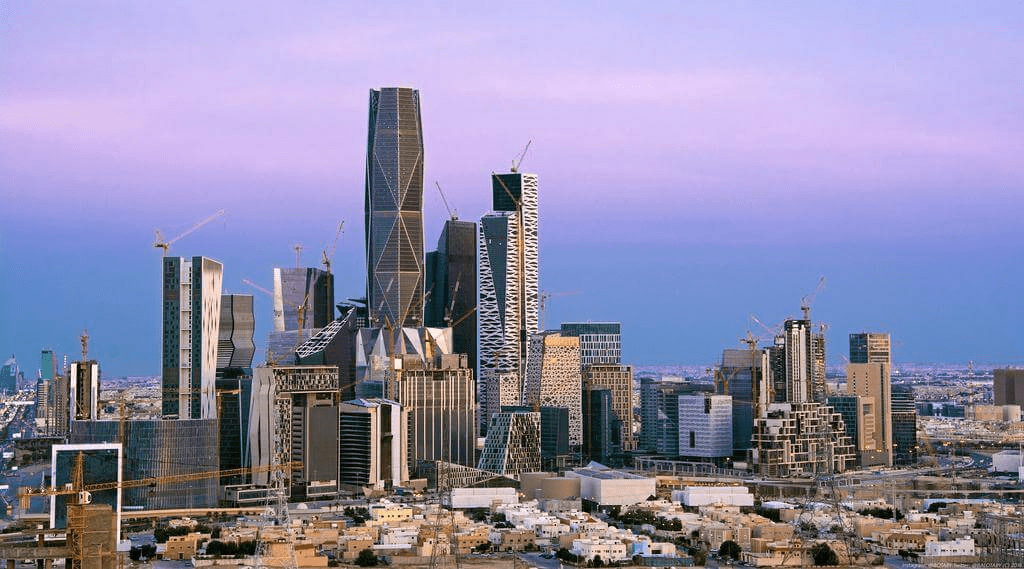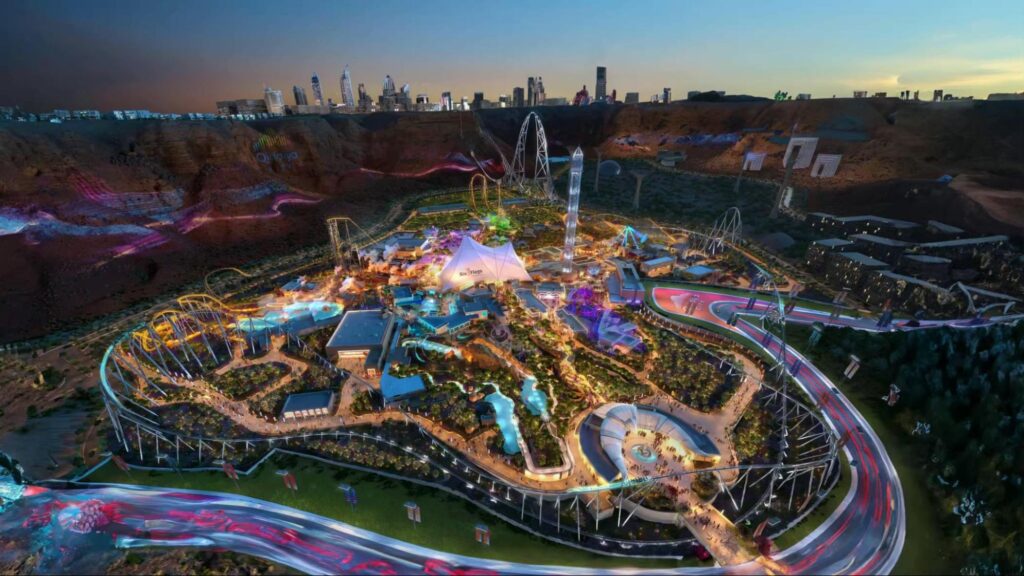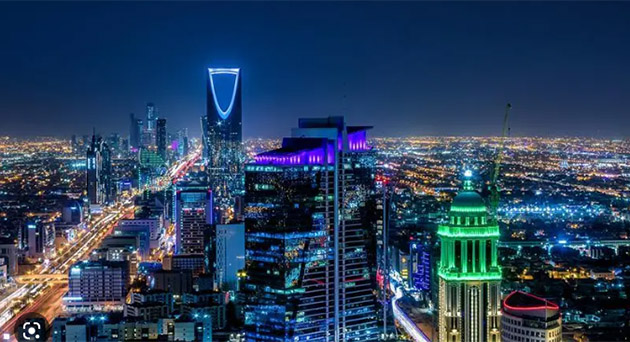Saudi Arabia industrial zones are witnessing a new wave of global investment, marking a pivotal moment in the Kingdom’s economic transformation journey under Vision 2030. With world-class infrastructure, investor-friendly policies, and an expanding manufacturing base, the Kingdom is fast becoming the industrial heart of the Middle East.
The Strategic Rise of Saudi Industrial Zones
Saudi Arabia’s government has strategically developed industrial zones to diversify its economy beyond oil. These zones—such as the Jubail Industrial City, Yanbu Industrial City, and the King Abdullah Economic City (KAEC)—serve as catalysts for industrial growth, innovation, and sustainable development.
The Saudi Authority for Industrial Cities and Technology Zones (MODON) currently oversees 36 industrial cities across the Kingdom, hosting over 6,000 factories and attracting hundreds of local and international investors. Each industrial zone offers integrated infrastructure, logistics connectivity, and a range of incentives that appeal to both domestic and foreign businesses.
These industrial hubs are not only expanding Saudi Arabia’s manufacturing capabilities but also strengthening the country’s position as a global logistics and production hub connecting Asia, Europe, and Africa.
Economic Vision 2030: Fueling Industrial Transformation
Under Vision 2030, Saudi Arabia aims to transform its economic landscape by increasing the private sector’s contribution to GDP and fostering sustainable industrialization. The development of industrial zones is central to this strategy, designed to empower entrepreneurs, attract multinational corporations, and generate employment opportunities for Saudi citizens.
According to MODON, the industrial zones’ cumulative investment value has exceeded SAR 400 billion (USD 106 billion), reflecting growing investor confidence in the Kingdom’s industrial ecosystem.
The zones focus on high-value industries such as:
- Petrochemicals and plastics manufacturing
- Renewable energy and green hydrogen production
- Advanced manufacturing and automation
- Food processing and pharmaceuticals
- Logistics, warehousing, and e-commerce support
Global Investors Eye Saudi Arabia Industrial Zones

Saudi Arabia industrial zones are rapidly becoming hotspots for international investors. In recent years, the Kingdom has signed partnerships with multinational giants from China, Germany, the United States, and South Korea.
Notable examples include:
- Lucid Motors, an American electric vehicle manufacturer, setting up its first overseas production plant in King Abdullah Economic City (KAEC).
- Hyundai Motor Group partnering with Saudi Aramco and POSCO to establish green steel and hydrogen facilities.
- Chinese and European firms investing in logistics and renewable energy projects within Yanbu and Jeddah industrial zones.
These collaborations are designed to transfer technology, enhance local capabilities, and create thousands of jobs for Saudi youth, aligning perfectly with the government’s national industrial strategy.
Strategic Advantages for Investors
Saudi Arabia’s industrial zones offer multiple competitive advantages that continue to attract foreign investors:
- Tax Incentives and Customs Benefits
Investors enjoy tax exemptions, streamlined customs clearance, and simplified business registration procedures. - World-Class Infrastructure
The zones feature advanced utilities, reliable energy supplies, and seamless connectivity to major seaports, airports, and highways. - Skilled Workforce and Training Programs
The government collaborates with local universities and vocational centers to train Saudi nationals in industrial skills and technology. - Ease of Doing Business
Through digital transformation initiatives, investors can now secure licenses, permits, and land leases online in record time. - Sustainability and Green Initiatives
Several industrial zones integrate renewable energy sources, waste recycling systems, and smart technologies to reduce their carbon footprint.
Industrial Cities as Innovation Hubs
The new generation of Saudi Arabia industrial zones is shifting toward smart industrial cities—a concept that integrates automation, artificial intelligence, and data analytics to improve production efficiency.
For instance, MODON’s Smart Industrial Cities Initiative aims to digitally transform operations across its industrial zones. Features include:
- Smart energy management systems
- Automated waste collection
- IoT-enabled safety monitoring
- Centralized control centers for infrastructure management
This technological advancement not only enhances sustainability but also positions Saudi Arabia as a leader in smart manufacturing within the GCC region.
The Role of MODON and Government Support
The Saudi Authority for Industrial Cities and Technology Zones (MODON) plays a vital role in managing and expanding industrial cities. It provides end-to-end services—from land allocation to infrastructure development and investment facilitation.
MODON’s initiatives include:
- Launching the National Industrial Development and Logistics Program (NIDLP)
- Introducing public-private partnership (PPP) frameworks for industrial infrastructure projects
- Expanding the industrial real estate portfolio to accommodate growing investor demand

Government-backed financing entities like the Saudi Industrial Development Fund (SIDF) also provide low-interest loans and financial support to manufacturers, especially in strategic sectors like renewable energy, defense, and food security.
Sustainability and Green Manufacturing Drive
In alignment with Saudi Arabia’s Green Initiative, industrial zones are integrating eco-friendly technologies and renewable energy solutions. Solar energy projects, energy-efficient production systems, and waste-to-energy solutions are now being implemented across several zones.
The Yanbu Industrial City, for example, is a leading model for green manufacturing, using desalination plants powered by renewable energy and circular economy systems to minimize waste.
By emphasizing sustainability, Saudi Arabia aims to become a global destination for green industries, ensuring that industrial growth aligns with environmental stewardship.
Regional and Global Connectivity
Saudi Arabia’s geographical position gives its industrial zones unmatched access to global trade routes. The Kingdom connects the Arabian Gulf with the Red Sea, serving as a logistics bridge between Europe, Africa, and Asia.
Projects such as:
- The Saudi Landbridge Railway
- NEOM Port and Logistics Hub
- King Salman International Airport expansion
…are designed to support industrial exports and streamline the movement of goods. This connectivity transforms Saudi Arabia into a key player in global supply chains.
Future Outlook: Accelerating Industrial Investments
The future of Saudi Arabia industrial zones looks promising. MODON has announced plans to develop new industrial cities across emerging regions like Asir, Tabuk, and Al Jouf, broadening the industrial map beyond major urban centers.
These projects will further:
- Encourage regional economic development
- Create new job opportunities
- Support SMEs and local entrepreneurs
- Strengthen the Kingdom’s non-oil GDP
As the government continues to implement reforms and attract FDI, experts predict that Saudi Arabia’s industrial investments could exceed SAR 1 trillion by 2030.
Conclusion
Saudi Arabia industrial zones stand as the backbone of the Kingdom’s economic transformation. With strong government support, investor incentives, advanced infrastructure, and sustainability initiatives, these industrial hubs are propelling the nation toward a more diversified and resilient future.
As Vision 2030 gains momentum, Saudi Arabia is not just attracting investors—it’s redefining the future of global industry and innovation in the Middle East.
Do Follow Gulf Magazine on Instagram
Also read: UAE Fitness Technology Trends Transforming Health and Wellness



